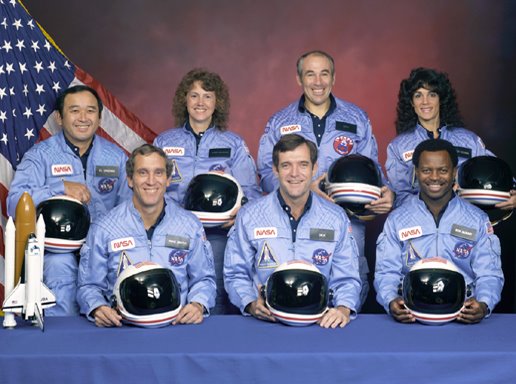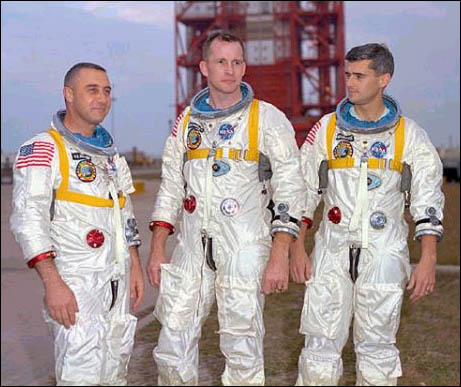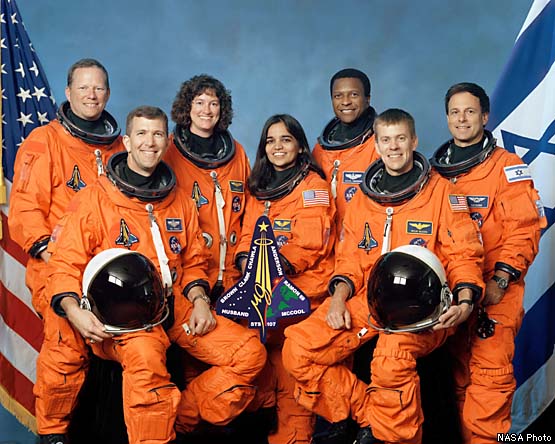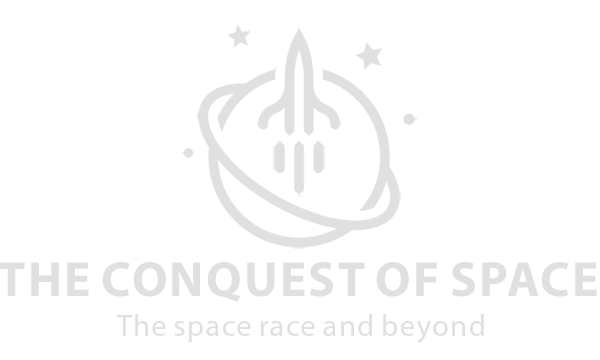This Day in Space History
January 27th is a day of remembrance in the annals of space history and a day to reflect on those that were lost in the conquest of space. On this date ten astronauts gave their lives in mankind’s reach for  the heavens. In 1967, Gus Grissom, Ed White and Roger Chaffee were
the heavens. In 1967, Gus Grissom, Ed White and Roger Chaffee were lost in an accident on Pad 34a during a routine test. Thirty-six years later Greg Jarvis, Christa McAuliffe, Ronald McNair, Ellison Onizuka, Judith Resnik, Michael J. Smith, and Dick Scobee were lost when the Space Shuttle Challenger exploded shortly after liftoff.
lost in an accident on Pad 34a during a routine test. Thirty-six years later Greg Jarvis, Christa McAuliffe, Ronald McNair, Ellison Onizuka, Judith Resnik, Michael J. Smith, and Dick Scobee were lost when the Space Shuttle Challenger exploded shortly after liftoff.
Both accidents dealt a blow to the space program, but the lives  of those astronauts and subsequent loss of the Columbia crew of Rick D. Husband, William McCool, Michael P. Anderson, David M. Brown, Kalpana Chawla, Laurel B. Clark, and Ilan Ramon on February 1, 2003 were not in vain and resulted in NASA taking a hard look at what it knew about the dangers of manned spaceflight, what it thought it knew, and what it still needed to learn.
of those astronauts and subsequent loss of the Columbia crew of Rick D. Husband, William McCool, Michael P. Anderson, David M. Brown, Kalpana Chawla, Laurel B. Clark, and Ilan Ramon on February 1, 2003 were not in vain and resulted in NASA taking a hard look at what it knew about the dangers of manned spaceflight, what it thought it knew, and what it still needed to learn.
In hindsight, all three accidents could have been prevented and the lives of seventeen people spared, but as is the case with all progress there resides  a technological naiveté and a complacency that is temporarily masked by success, but one that eventually results in disaster. Many more have given their lives to in-flight and ground accidents in the Russian space program and America too has had other close calls and lost others to lesser publicized training and ground accidents. It is from great sacrifice that great things are learned and achieved. The space program is safer for crews today and safer for crews tomorrow as a result of the lesson learned from Apollo 1, Challenger and Columbia.
a technological naiveté and a complacency that is temporarily masked by success, but one that eventually results in disaster. Many more have given their lives to in-flight and ground accidents in the Russian space program and America too has had other close calls and lost others to lesser publicized training and ground accidents. It is from great sacrifice that great things are learned and achieved. The space program is safer for crews today and safer for crews tomorrow as a result of the lesson learned from Apollo 1, Challenger and Columbia.
